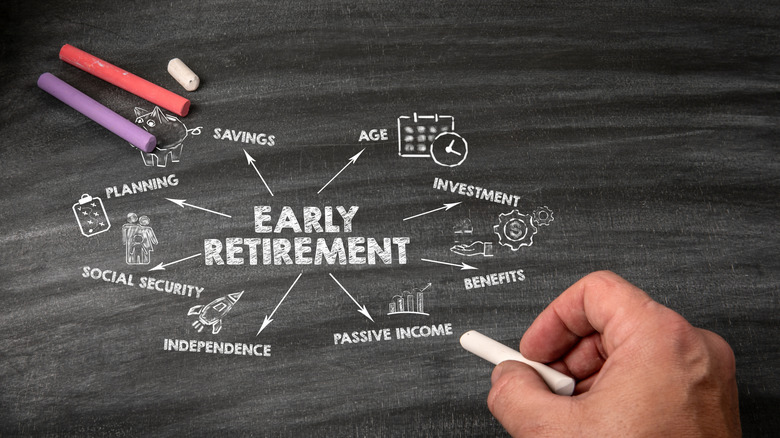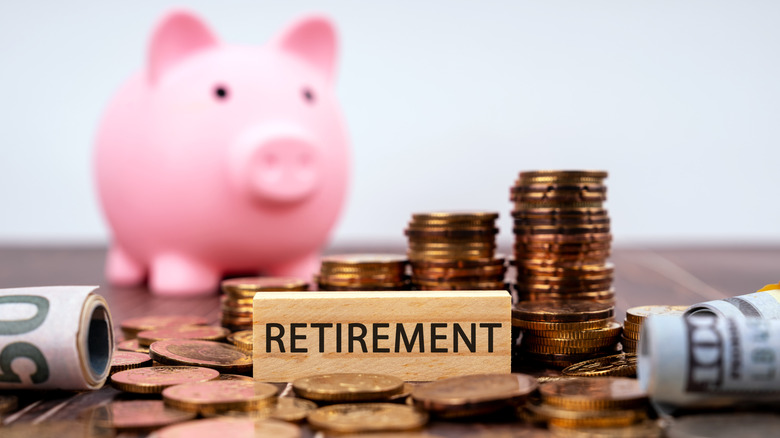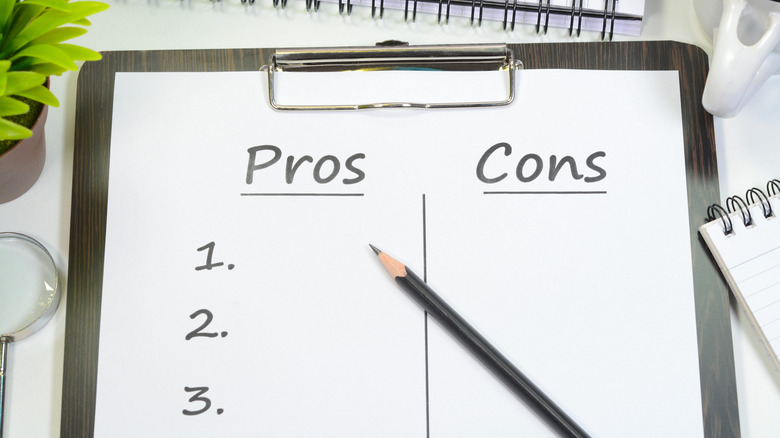How Much Money You Really Need To Safely Retire At 50
Retiring at 50 is a dream for many working Americans, but in order for that to happen you have to either be really luck or start early and do plenty of planning along the way. It is actually possible, however, which begs the question — how much money do you actually need? The answer, it turns out, isn't so simple. It depends on a lot of different factors, like where you plan to live and what kind of lifestyle you have planned for yourself, along with unexpected surprises like caring for sick loved ones. While there are plenty of opinions out there on how much you'll need – Unbiased, for example, recommends saving enough to have $50,000 per year for retirement; with a life expectancy of 85, that means a savings of $1.75 million — still others recommend different approaches to how much you'll need. SoFi, for example, recommends that you plan on having enough to cover 80% of your current annual income for your retirement. Regardless of the school of thought you follow, the more you save and the more passive retirement income you have set yourself up for, the better off you will be.
No one can determine how long they will live or what type of unexpected problems (like health issues, personal tragedies, or family members needing support), so experts like Aaron Cirksena, Founder and CEO of MDRN Capital instead focus on how to make an early retirement happen. Money Digest reached out to Cirksena and got some great advice on what one would need to do to make the dream of retiring at 50 become a reality.
How to prepare to retire at 50
"To retire by 50, you need an aggressive strategy," says Aaron Cirksena. He recommends setting aside 50% to 70% of your income and investing it in low-cost index funds and ETFs. He also suggests planning for early access to those retirement funds, like setting up a Roth IRA conversion ladder, a strategy that lets you withdraw from your retirement accounts without penalties before you reach the age of 59½.
Cirksena also encourages those planning to retire early to know your annual expenses and consider for inflation and healthcare costs that may come up. He also has some incredibly important basic tips that involve your daily living as you prepare for retirement. "Increase income and minimize expenses," he says. "Set up automatic savings to keep consistency, and find a withdrawal strategy, like the 4% rule, that keeps you accountable. Always have an emergency fund."
The 4% rule requires having 25 times your annual expenditures saved, and safely withdrawiing 4% per year. At this rate, your funds are unlikely to run out in your lifetime due to factors like compound interest. You can also bridge the gap with some income-generating strategies so you can ensure you're financially prepared to make such a life-changing move.
Pros and cons of retiring at 50
You might think the pros and cons of retiring early might be a little lopsided, but the truth is there are actually plenty of arguments on both sides of the issue. The pros are easy — you have the time to do the things you enjoy rather than spending your time in an office (or any number of work environments) and you are (hopefully) still in good enough health and shape to do the things you want to do. You also have time to help out with family obligations like babysitting or caring for sick loved ones and spend time working on your favorite hobbies or learning new ones. And if you've ever thought about doing some occasional consultant work, early retirement makes it possible to do that on your terms.
When it comes to the cons, there are some who will advise you not to retire early, and they have their reasons to support that argument. One of the biggest cons is that you might run out of money. That's where careful planning comes in, not just in terms of setting aside enough money and having a passive source of retirement income, but also in terms of how you budget your money and watch your spending.
A particularly motivating con is your Social Security, which you won't be able to collect until you are eligible and if you start claiming before you reach your full retirement age, your benefits will be significantly lower — 30% to be exact, which is enough to of a difference to impact your livelihood if you find yourself relying on social security in retirement.


